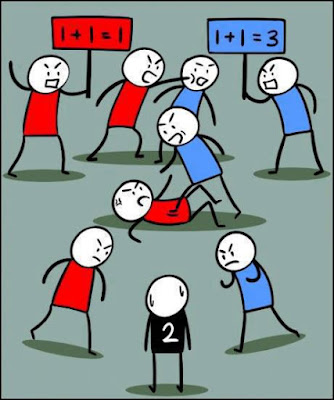It's definitely worth off for everyone to watch it because it certainly makes us happier whenever we watch this movie on the new year eve day every year!
I introduced the original "The Irony of Fate" last year. This year, I also would like to show there is "The Irony of Fate 2: A Sequel of the famous Russian New Year Tradition Movie"
This movie was created after the USSR collapsed and the new Russian federal republic was established. Even though the time has passed, and Russia has been transformed, this movie succeeded in taking over the great quality from the original one. is also a wonderful movie which not only entertains us but also philosophically enlighten us with the unique Russian humour and wisdom as same as the original. It's also nice to see the reunion of Zhenya and Nadia when they became elderly. Their heart is still burning young!
Nonetheless, although the second series is very good, it is never able to beat the first series! The first series is so legend that we tend to doubt about whether such a legendary entertainment can be ever created again nowadays or a future....
I would love all people to watch the first series of The Irony of Fate: Russian New Year Tradition Movie and then also love to watch The Irony of Fate 2: A Sequel of the famous Russian New Year Tradition Movie. I am not sure if we have got enough time to finish watching both of them because we have already not got much time to catch up welcoming this coming new year...! Hurry up to watch these smashing nice movies!!!
*The following article is that I wrote last year:

This is the movie strongly recommended by my female friend from a Russian speaking country.
According to her, almost all Russian speaking people watch this movie in the night between the new year eve and the new year day. The reason why this movie is popular is that watching this movie before the new year comes makes people really happy, content, pleased, and entertained, and happily welcome the new year.
This movie is a love romance movie which contains Russian humours. Russian humours are quite unique. We see the humours from experiencing a little bit of pains in a funny incidence. Russian people seem to know how to laugh at unexpected incidences with some pains. We can see a strong pleasing humour from their natural ability to overcome any unexpected incidence and always expect a better outcome afterward by making fun of it instead of remaining the pain hurting them.
This also involves a secret rhetoric to criticise the extravagant USSR administration by using an example of their housing development plan. The great ability of Russian film makers is that they produced a love romance movie which does not look like harshly criticing the USSR administration. They simply made a fun of the negative influence of the administration in the Russian humours! The USSR government official would have never felt being criticised at all, and they would have simply enjoyed seeing the funny humour and unique charming personalities of the characters in this story!
This love romance is so diffrent from cheesy movies which always show provocative sex scenes in order to attract mobs to watch. This Russian movie is a traditional love romance which shows having experiencing dilemas and struggles to acquire a loving relationship with each other. Unlike the films shown nowadays, this Russian movie expresses the complicated feelings these young adults face, and how this complication developed their romantic mood. The story in this movie takes place in the contemporary time when majority of young adults still had a naive attitude toward loving relationship. This story may make young adults, and even teenagers, nowadays think these young adults in this story are too naive and jevenile. Nowadays, the romance these characters in this story experience seems to no longer exist so that some young generations may find difficult or even impossible to understand the meaning of the love of these characters in this story. However, I am happy to introduce these young generations to watch this movie as well.
This is educational to learn that openness of sexual relationship and having a big love romance are different from each other. At the contemporary period, people might not have been to flexible to express their emortion to each other unlike nowadays. These contemporary people have struggles in expressing their emortions and then suffer from dilema and regrets more than those nowadays. I do not mean the feeling and attitude toward love nowadays is faded. In fact, I embrace the flexibility and openness of expressing love, by means of physically and mentally, nowadays, and detest the reluctancy on expressing love in the old days. Nevertheless, the feeling of romance becomes bigger when the obstacle of expressing and/or obtaining love becomes bigger. Therefore, in this movie, we can discover the love romance which grows in the sorrow, the struggle, and the achievement after overcoming the reluctancy and the obstacle in the old day men&women relationship!!
Well, I hope everyone enjoys watching this video. This is a really good asset of people having lived in the communist Russia period! Click the following link to go to the website to watch "The Irony of Fate"!!
* Russian New Year Tradition Movie:
- The Irony Of Fate
http://video.kylekeeton.com/2008/12/russian-video-new-year-tradition-movie.html

* The image of this picture is from http://darim.info/59870-ironiya-sudby-ili-s-legkim-parom-saundtreki.html.












